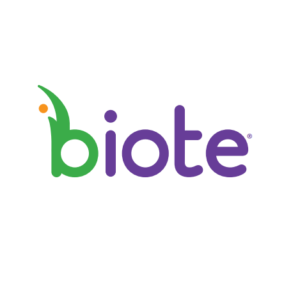
Olympian Tori Bowie’s Tragic Death In Childbirth – Understanding Eclampsia, Labor Complications & Racial Disparities in Maternal Mortality
July 21, 2023
“Snoozing to Loosing” Plants That Help One Loose Weight While Sleeping
August 8, 2023“Anti-Auto Diets” Anti-Inflammatory &a犀利士
mp; Autoimmune Diets – Aromance Life Institute
Understanding Autoimmune Diseases
The exact cause of autoimmune diseases remains a subject of ongoing research and inquiry, with experts yet to pinpoint the exact cause.
An autoimmune disease occurs when the immune system malfunctions.
The immune system normally fights and gets rid of foreign bodies, such as germs — autoimmune diseases occur when the immune system accidentally attacks healthy cells.
The very cause of autoimmune diseases remains uncertain, but they can impact various cells, tissues, and organs throughout the body.
Scientists have identified more than 80 different autoimmune diseases.
Some well-known types include:
- Multiple sclerosis.
- Crohn’s disease.
- Graves’ disease.
- Hashimoto thyroiditis.
- Inflammatory bowel disease (IBD).
- Rheumatoid arthritis.
- Type 1 diabetes.
- psoriasis
- Lupus
- Endometriosis
- Addison’s disease.
- Celiac disease.
- Kawasaki disease.
- Interstitial cystitis.
Many autoimmune diseases are not known to have a direct cause, but genes, gender, viruses, infections, smoking, obesity and environmental factors may play a significant role.
Below we will talk about “Anti-Auto Diets”, — which discuss anti-inflammatory and autoimmune diets in detail.
If you or a loved one suffers from an autoimmune disease and is seeking natural ways to reduce the symptoms, then this blog is for you.
What are Anti-Inflammatory & Autoimmune Diets?
Understanding Inflammation
Inflammation is a natural response of the immune system to injury or infection.
Stress, poor diet, and environmental toxins can trigger chronic inflammation.
Prolonged inflammation causes damage to healthy cells, leading to pro-inflammatory conditions.
In addition, genetic deviants can cause the immune system to attack cells constantly.
For inflammatory conditions, anti-inflammatory diets are recommended – the foods in these diets help lower inflammation.
The Role of Autoimmune Diets
Autoimmune disease diets are specifically created to alleviate symptoms and manage these diseases.
These diets reduce inflammation by avoiding foods that might trigger immune responses and incorporating nutrient-dense, anti-inflammatory foods.
Certain foods can worsen inflammation, trigger immune responses, and intensify symptoms — whereas others have anti-inflammatory properties that soothe the immune system.
There’s a link between diet and autoimmune diseases, so personalized diets are important.
There isn’t a known autoimmune disease natural cure but diets can help lower the symptoms.
Diet Plans for Autoimmune Diseases
Creating the Best Autoimmune Diet Plan
Crafting an effective and easy autoimmune diet plan requires careful consideration of the person’s needs and symptoms.
Consulting an autoimmune dietician or a nutritionist specializing in autoimmune disorders can be extremely helpful in creating a personalized meal plan.
The nutritionist will examine trigger foods, nutritional deficiencies, and lifestyle factors to design a diet that optimally heals.
As each person’s response to food differs, customized care ensures an effective management plan.
Find out more about diet plans for losing weight.
The Autoimmune Protocol Diet (AIP)
The autoimmune diet — known as the Autoimmune Protocol (AIP) diet, adopts a restrictive approach to mitigate inflammation and support healing.
The AIP diet is intended to calm the immune system and prevent it from attacking healthy tissues.
It eliminates food sensitivities, triggers, and irritants that harm the digestive tract, which improves gut health and immune system balance.
AIP involves stages:
- Elimination Phase – Eliminate inflammatory foods like grains, dairy, eggs, nuts, legumes, nightshades, alcohol and processed sugars.
- Nutrient-Dense Foods – Emphasize meats, fish, vegetables, fruits, healthy fats, and fermented foods to support the immune system.
- Reintroduction Phase – Gradually reintroduce eliminated foods to identify triggers and see if symptoms arise.
AIP may present some initial challenges but has shown some positive results.
However, some people may not be able to follow the autoimmune protocol diet list because the elimination phase is very restrictive.
A gradual transition, introducing new foods and recipes slowly, can make the adjustment more manageable and sustainable.
If its reintroduction phase is avoided for too long, it might lead to nutrient deficiencies.
The effectiveness of this diet is currently limited to those with IBD and Hashimoto’s disease.
Anti-Inflammatory Diet
The anti-inflammatory diet is intended to reduce chronic inflammation, a common factor in various diseases, including autoimmune conditions.
Anti-inflammatory diet showed positive effects in people with rheumatoid arthritis according to a study from 2020.
The diet emphasizes whole, nutrient-dense foods while limiting processed and inflammatory foods.
Calories and portion sizes are not strictly regulated in anti-inflammatory diets.
Instead of focusing on one or two specific foods or nutrients, it suggests a variety of anti-inflammatory foods to eat every day.
An anti-inflammatory diet consists of:
- Fruits and vegetables – Rich in antioxidants and phytonutrients that combat inflammation.
- Healthy fats – Polyunsaturated omega-3 fats.
- Lean proteins – From sources like poultry and beans to aid muscle repair and immune function.
- Whole grains – Unprocessed grains like quinoa and brown rice provide fiber and nutrients.
- Herbs and spices – Turmeric, ginger, garlic, and other spices with anti-inflammatory properties.
Inflammatory foods to avoid:
- Sugar – To avoid pro-inflammatory effects.
- Fried food.
- Premade desserts.
- Processed high-fat meats like bacon and sausage.
- Full-fat dairy products that contain saturated fats.
- Alcohol.
Anti-inflammatory principles already apply to many popular diets.
The Mediterranean and DASH diets include fresh fruits and vegetables, fish, whole grains, and heart-healthy fats.
Plant-Based Diet
Can a plant-based diet help autoimmune disease? The plant-based diet has been proven to help people with autoimmune diseases, as shown in the 2019 study on rheumatoid arthritis and the 2022 study on lupus.
This diet focuses on whole plant foods like fruits, vegetables, legumes, nuts, and seeds.
These foods are rich in antioxidants, vitamins, and minerals, providing anti-inflammatory benefits.
A plant-based diet does not entirely restrict meat but it reduces, which might benefit some people with autoimmune diseases.
Although, it requires careful planning to ensure adequate protein and nutrient intake.
Gluten-Free Diet
The gluten-free diet is essential for people with celiac disease, an autoimmune condition triggered by consuming gluten, a protein found in wheat, barley, and rye.
In celiac disease, gluten causes an immune response that damages the lining of the small intestine, which leads to malabsorption and various symptoms.
The gluten-free diet involves eliminating all sources of gluten, including foods, beverages, and even certain medications and personal care products that contain gluten or gluten-derived ingredients.
Herbs for Autoimmune Diseases
Herbs are full of anti-inflammatory and immune-modulating properties that nature has gifted us.
Consuming these herbs as supplements, under the guidance of a healthcare professional, can complement an anti-auto diet and increase its healing potential.
Turmeric (Curcuma longa) – Helps reduce inflammation in autoimmune conditions.
Ginger (Zingiber officinale) – Supports the immune system.
Boswellia (Boswellia serrata) – Helps alleviate inflammation and promote joint health in certain autoimmune diseases like rheumatoid arthritis.
Green Tea (Camellia sinensis) – Green tea contains polyphenols, including epigallocatechin gallate (EGCG), which have anti-inflammatory and antioxidant effects.
Licorice Root (Glycyrrhiza glabra) – Has immune-regulating effects and could benefit certain autoimmune conditions.
Ashwagandha (Withania somnifera) – Helps modulate the immune response and reduces stress, which can be beneficial in managing autoimmune diseases.
Reishi Mushroom (Ganoderma lucidum) – Helps balance the immune system and reduce inflammation.
Astragalus (Astragalus membranaceus) – Helps modulate the immune response and has been traditionally used to support immune function.
Echinacea (Echinacea purpurea) – Helps in certain autoimmune conditions by enhancing the body’s defense mechanisms.
The Takeaway
Autoimmune diseases are serious, and proper management is imperative; and diets might work differently for everyone.
Avoid self-medicating and consult your doctor before combining herbs with medications.
Make well-informed decisions by consulting a doctor, dietician, or nutritionist.
A well-tolerated, anti-inflammatory diet can improve your condition — avoiding trigger foods, which are foods to avoid with autoimmune disorders, can also make a significant difference in managing autoimmune diseases effectively.
In collaboration with the Aromance Life Institute, a leading authority in holistic health and well-being, we have a team of experts who can help with autoimmune disease management.
Using evidence-based approaches, personalized consultations, and anti-inflammatory diets, we help you find a more lively way of living through help and motivation.
Contact us today and let us know your concerns – together, we can achieve lasting positive outcomes for your health.









